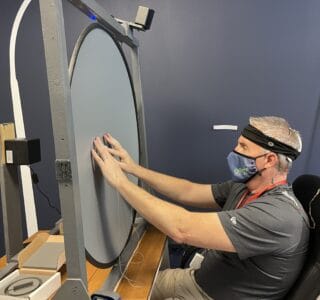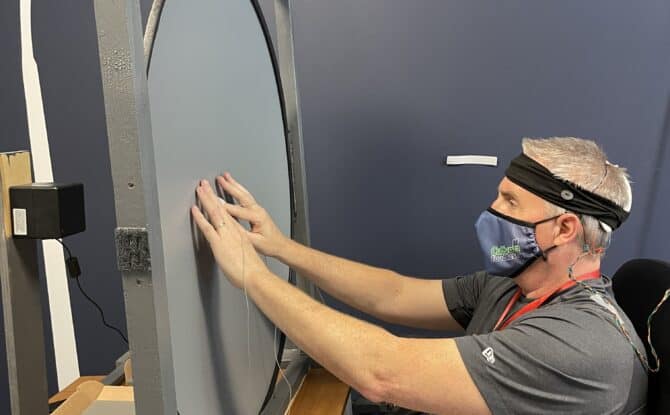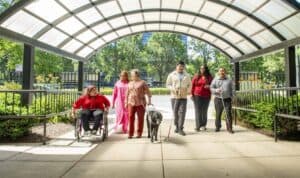
A Holistic Approach to Clinical Research Leads to Breakthroughs
The Intracortical Visual Prosthesis (ICVP), a visual prosthetic device that is implanted directly into the visual cortex area of the brain, is, without a doubt, a technological breakthrough. But the clinical trial to evaluate the device has been groundbreaking in another way.
From the very beginning of the trial, The Chicago Lighthouse has provided our expertise and insight to ensure participant-centricity. When Dr. Phil Troyk, who invented the device, and Dr. Frank Lane, who screens prospective participants, first began planning the trial, The Lighthouse has served as a resource to ensure the device meets the blind community’s needs.
“Any device, whether it’s a simple magnifier or an AI-enhanced piece of assistive technology or even a sophisticated brain implant, is only effective if it is useful,” says Janet Szlyk, Ph.D., President and CEO of The Chicago Lighthouse. “From the beginning, we have prioritized understanding how the ICVP can functionally improve daily lives.”
This effort has included holding focus groups early in the trial’s planning stages to solicit community input about setting realistic device expectations and including an individual who is blind serve as a participant advocate throughout the process.
“Including the participant’s perspective is one reason our trial has been successful,” says Patricia Grant, Ph.D., The Lighthouse’s Senior Vice President of Research and Lauren M. Ross Chair of Low Vision Research. “This is a complex, multifaceted trial that combines human experience with a sophisticated piece of engineering. Ensuring the technology develops in a way that aligns with the blind community’s expectations and aspirations is our priority. They are the experts of their own experiences and needs.
Of course, that’s what happens when you enlist an organization that has built a reputation of patient-centricity over 70 years of serving people who are blind or visually impaired. It’s also how you create a participant-centric model that will hopefully be emulated in clinical trials to come.
“We pride ourselves on not simply being a cold, clinical research hub,” Dr. Szlyk says. “Our historical focus on patient care and community advocacy ensured that the project was ethical and person centric. As a result, we have been able to achieve remarkable results.”


